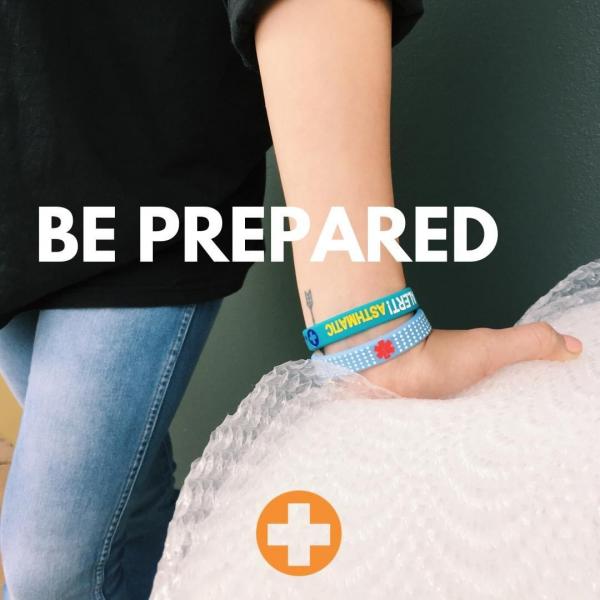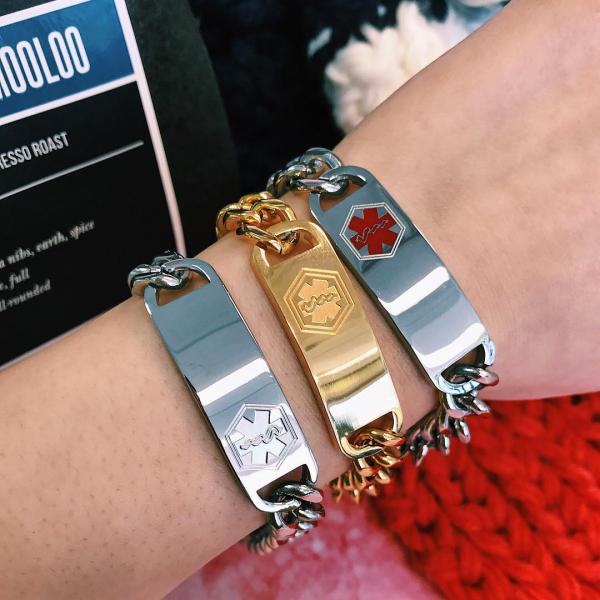Health News
Mediband brings you the latest health news and medical safety news so that you can stay up-to-date with what might affect you, your family and loved ones and make better informed decisions to stay safe and healthy. Mediband delivers relevant information in clear, easy to understand language that puts your health into context. Through medical content, insights from experts and real people, and up-to-date news, we help you understand: how it happened, what it feels like, what you can do about it, and why it matters. Feel free to read the blogs and articles that follow and of course if you have any questions whatsoever, leave a comment and the Mediband Team will be sure to get back to you. At Mediband, we're driven by making your life and everyday living safer. If the questions are out of our depth, we will advise you accordingly, and of course, if you have a medical emergency, please visit your local emergency department or local Doctor. Worry Less, Live More!
-
5 Reasons Why You Should Wear a Medical ID Bracelet
A medical ID bracelet is something you wear on your wrist to alert people to your medical condition. Medical professionals look for them in an emergency. This is especially important when they have no other information about you. If you suffer from a health condition — whatever it is — we recommend you consider wearing one. They are especially popular for people with the following conditions: Continue reading → -
What Details Should Be Recorded on My Allergy ID Bracelet
Anyone with allergies understands how scary an allergic reaction can be. For most people, allergies are simply something they deal with, with no severe problems other than mild annoyance. This changes when you have severe or life-threatening allergic reactions. The resulting anaphylactic shock can even cause death. When you engrave allergy information on your allergy ID bracelet, be concise. Not only can this save your life, but it can help you get treatment faster. In other words, if you have food allergies, drug allergies or even insect allergies, and you need an allergy ID bracelet for your important medical records, this is for you. First, we'll go over what an allergy ID bracelet is. Second, we'll cover the different types of allergy medical ID bracelets. Finally, we'll end with the outcomes of not having one. Continue reading → -
The Origin of the Medical Emergency Symbol
The snake with the staff is a common medical alert symbol. It represents health and healing. You find it on medical ID bracelets, and the background is either blue or red. Each point has a certain meaning, and the snake and staff themselves have special meanings. You can find this medical alert symbol on hospitals, medical centres and ambulances. If you're curious about how the medical alert symbol came about and what it means, read on. -
Is My Health Record Safe?
 Although 15th October seems far away, you don’t have long to opt out of My Health Record. The idea behind the record is simple. All of your paper records will enter the digital world. The aim is to make it easier for clinicians to find information. Currently, every Australian will see their record transform into a digital format. You can opt out, but the deadline is October 15th. Opting out after this date is possible. But, the government can continue storing information they already hold until 30 years after your death.
There are lots of arguments for and against the My Health Record system. If you need a Mediband, or your child does, it’s worth knowing the arguments on both sides. Continue reading →
Although 15th October seems far away, you don’t have long to opt out of My Health Record. The idea behind the record is simple. All of your paper records will enter the digital world. The aim is to make it easier for clinicians to find information. Currently, every Australian will see their record transform into a digital format. You can opt out, but the deadline is October 15th. Opting out after this date is possible. But, the government can continue storing information they already hold until 30 years after your death.
There are lots of arguments for and against the My Health Record system. If you need a Mediband, or your child does, it’s worth knowing the arguments on both sides. Continue reading → -
Hypoglycemia Signs, Symptoms and Treatment Options
 People know hypoglycemia by the common name of low blood sugar. People also call it insulin shock or an insulin reaction. Currently, around 4% of the Australian population has this condition. Low blood sugar falls in the range of 70 or less mg/dl. People measure blood sugar in milligrams per deciliter. What a doctor classifies as low varies from person to person. It's important that you talk to them if you're having problems.
Common Signs and Symptoms of Hypoglycemia
The signs and symptoms of low blood sugar vary from person to person. It's important that you know what your signs and symptoms are. Continue reading →
People know hypoglycemia by the common name of low blood sugar. People also call it insulin shock or an insulin reaction. Currently, around 4% of the Australian population has this condition. Low blood sugar falls in the range of 70 or less mg/dl. People measure blood sugar in milligrams per deciliter. What a doctor classifies as low varies from person to person. It's important that you talk to them if you're having problems.
Common Signs and Symptoms of Hypoglycemia
The signs and symptoms of low blood sugar vary from person to person. It's important that you know what your signs and symptoms are. Continue reading →



